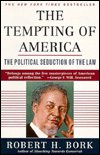So Afghans Plan to Execute a Convert to Christianity; Is it Any Business of Ours?
Makes you thankful for a nation where legislators and judges value at least the appearance of a consistent jurisprudence.
But what can the United States do for the accused Afghani? Should the President do anything? Does he have a role, and if so, by what authority? As they say, what gives Americans the right to interfere? Obviously our First Amendment does not guarantee freedom of religion to a man in Afghanistan. But another U.S. law requires the President to get involved in cases of religious persecution:
The International Religious Freedom Act of 1998. This Act, a response to the worldwide persecution of Christians and others following the collapse of Soviet Communism, and initially opposed by "Free-Trade Republicans" (including Phil Gramm, R.-Tx.), the Clinton White House, and Democrats worried about how it would impact their President, eventually passed both houses unanimously and was signed into law by President Clinton. I've told the amazing story elsewhere. My point here is that this American law places a burden on the U.S. Executive Branch. It is now our national policy not to be isolationist in matters of religious freedom:
Nothing in the Act requires the President to address this or any other specific case. However, if the new government of Afghanistan hopes for the continued support of the nation whose young patriots died to release that land from the iron fist of Taliban rule, it should be required to set this man free. I think our President should be able to make that clear.[R]ecent years have seen an increase in the amount of religious discrimination and persecution in other countries. By 1998 the international situation for the devout of all faiths had deteriorated to such an extent that the United States passed the International Religious Freedom Act in an attempt to alleviate the suffering of the persecuted. Suddenly religious freedom became an integral part of America’s foreign policy.
The Act argues that religious freedom has always been a fundamental part of America’s history. Now religious freedom is also a fundamental part of its foreign affairs, a possible deal breaker in negotiations with other countries. This ambitious new law has altered the landscape of U.S. foreign policy. Such sweeping change merits close scrutiny.
The Act places the primary responsibility on the President for promoting religious freedom abroad. He is required to promote such freedom by negotiating with, withholding aid from, and levying sanctions against the worst offenders.


4 Comments:
Very interesting and informative.
Thanks.
By Anonymous, at 3:43 PM, March 21, 2006
Anonymous, at 3:43 PM, March 21, 2006
You're welcome. And thanks for the additional e-mail comments. I'll make that change....
By S., at 8:23 AM, March 22, 2006
S., at 8:23 AM, March 22, 2006
I sent a message to nearly everyone on my list asking
them to check this out and
e-mail the President. Now
we must pray! Jesus is victor
no matter what happens.
By Anonymous, at 9:31 AM, March 22, 2006
Anonymous, at 9:31 AM, March 22, 2006
I sent the President a letter, just now. I usually am too lazy--but we're talking about the execution of a brother. Thanks for getting the word out.
By S., at 12:08 PM, March 22, 2006
S., at 12:08 PM, March 22, 2006
Post a Comment
<< Home